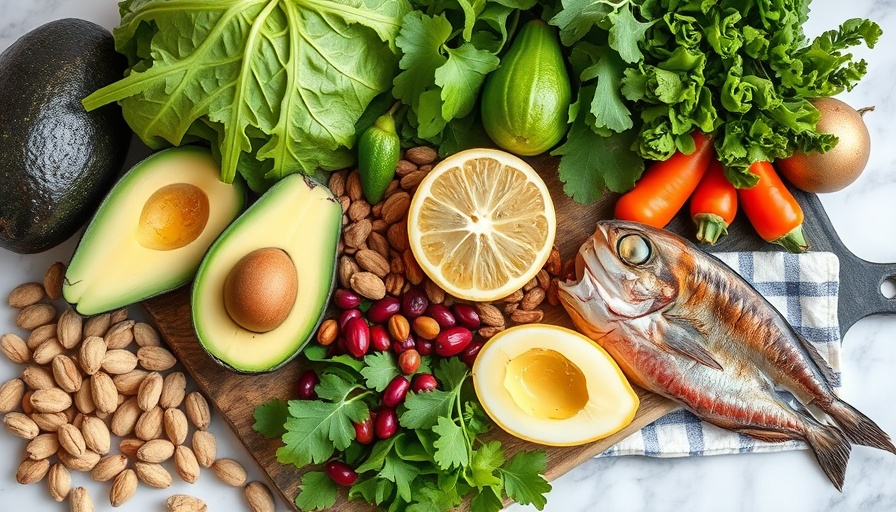
How Your Diet May Influence Brain Health
Recent studies reveal a strong connection between diet and brain health, particularly as we age. A comprehensive examination of over 3,000 older adults has shown that adhering to the MIND diet can lead to a 27% reduction in dementia risk. This hybrid diet, blending elements from the Mediterranean and DASH diets, provides a practical and appealing approach for health-conscious individuals aiming to improve their cognitive function.
Understanding the MIND Diet
What makes the MIND diet unique? Its focus on nutritious, brain-friendly food. Emphasizing leafy greens, berries, nuts, beans, whole grains, and healthy fats like olive oil, the MIND diet promotes protective nutrients that support brain health. In contrast, it limits the intake of red meat, fried foods, and sugary snacks—culprits believed to contribute to cognitive decline. This straightforward strategy not only simplifies the journey to better health but also makes it more enjoyable. Moreover, even slight adjustments in daily meals—such as adding a serving of spinach or swapping out butter for olive oil—can yield positive results for your mind.
A Small Shift Makes a Big Difference
What’s noteworthy about the MIND diet is that perfect compliance isn't necessary for benefits to emerge. Research indicates that even a modest embrace of its guidelines can result in enhanced cognitive function. This is good news for busy lifestyles! It means that simply incorporating more nutrient-dense foods into your routine can lead to significant improvements in mental clarity without demanding a complete overhaul of your eating habits.
Why This Matters Now More Than Ever
With rising concerns over dementia and cognitive decline, understanding how food can act as a preventative measure is vital. It is clear from mounting research that daily nutrition choices have profound effects on brain aging. As aging populations become increasingly common in our communities, spreading awareness about the role of diet is critical. Health-conscious individuals, students, busy professionals, and parents alike can take control of their cognitive health through actionable dietary changes.
The Benefits of Choosing Healthier Foods
Choosing nutrient-rich foods doesn’t just support brain health; it offers holistic benefits that enhance overall well-being. With each meal enriched with vegetables, whole grains, and healthy fats, you are not only nourishing your brain but also performing a kindness to your entire body. The MIND diet encourages a lifestyle that leads to increased energy, improved mood, and a lower risk for chronic illnesses.
Pathways to Integrating the MIND Philosophy into Your Life
So how can you start incorporating MIND principles into your daily meals? The key is in simplicity and consistency. Here are some easy steps:
- Start with breakfast: Opt for oatmeal topped with fresh berries and a sprinkle of nuts.
- Snack wisely: Reach for carrot sticks and hummus instead of chips.
- Make meal prep a habit: Create MIND-friendly meals with plenty of leafy greens and lean proteins during the weekend.
By gradually weaving these nutritious choices into your diet, you can enhance your energy levels and overall wellness while also supporting your mental health.
Take Charge of Your Brain Health Today!
Mindful eating can make a real impact on your cognitive health. By understanding the connection between your diet and your brain, you are empowered to make choices that enhance your quality of life. Whether you are seeking to boost your energy levels or reduce your risk of dementia, adopting the MIND diet is a compelling pathway to a healthier future. Don’t wait any longer—start today!
 Add Row
Add Row  Add
Add 







Write A Comment